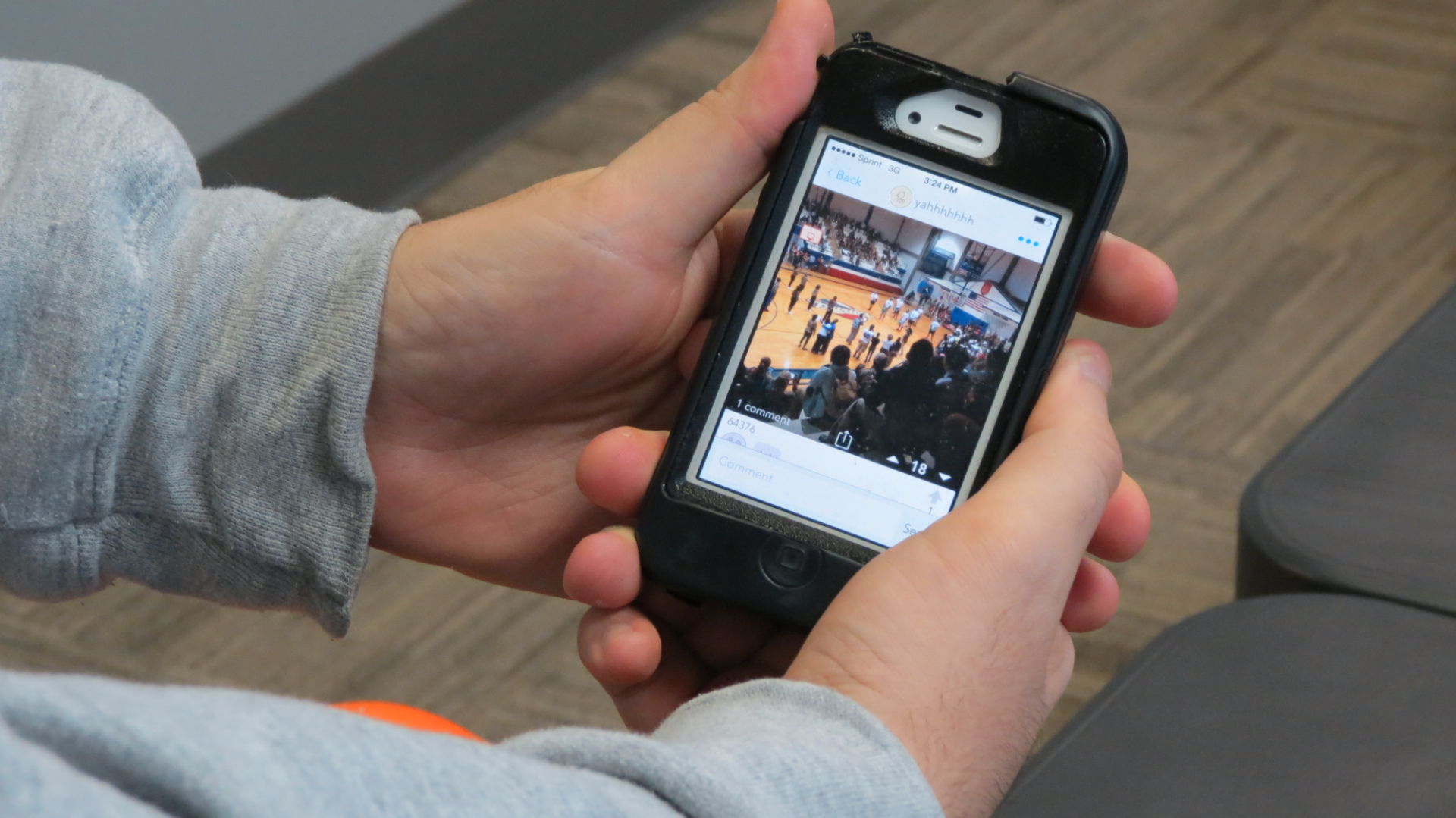
Group keeping the French culture alive in Lafourche Parish
November 11, 2014
12 affordable housing units come to Lafourche
November 11, 2014Alarmed by evidence of high school cyberbullying through a smartphone application, a group of local parents has waged an online guerilla-style war.
Some have subscribed to the app “Streetchat,” posting positive messages to offset off-putting, sometimes cruel jibes directed at students and faculty members at area high schools. On some occasions they have directly contacted parents of students posting photos and messages perceived as bullying.
Experts in the field of teen cyber life say the display of concern is laudable. But they also say the victory some parents are claiming is merely one battle in an ever-escalating war.
Streetchat is available for free and is described by its developers as “an anonymous bulletin board to post photos to the people in your school. It is a fast reliable way to share your thoughts, gossip and talk about things around you.”
School sponsored programs that address head-on the problems raised for students by irresponsible use of technology, consultants say, should be viewed as a long-term and viable option.
Sarah Shea of Boston-based Cornerstone Reputation www.cornerstonereputation.com said that in addition to pain caused by online bullying or ridicule, the risks from misuse of technology can have devastating effects on the offending students, in ways they don’t even imagine.
That’s part of the message she and other representatives of the firm bring to parents, educators and students nationwide and overseas. What cyberbullies or suspected cyberbullies need to know, they say, is that the reputation of the aggressor or trickster, in the long run, is potentially more at risk in the cyberworld than that of the victim.
“You are not as anonymous as you think you are,” is what Shea tells students during her presentations, which don’t so much appeal to student desires for good citizenship or empathy as they do to self-preservation. During the presentations, Shea says, she can see smirks crumble.
The approach may appeal to self-serving instincts, she acknowledges. But for teens – already convinced they are individually centers of the universe – that is what builds-in the effectiveness.
The Streetchat war currently being waged by parents is understandable and their commitment should be admired, Shea said. But she hopes local schools are giving parents and students the tools they need to make the awareness and the caring more effective.
A Maine-based website, www.cyberslammed.com, singled out Streetchat in one of its reviews, calling out the app for how its structure can be used easily for bullying purposes.
Cyberslammed founders Kay Stephens and Vinitha Nair make tools for educators and parents available online, some for free, and – like Cornerstone Reputations – provide on-site programs in the schools themselves
“After all the vicious cyberbullying that has come out of past anonymous phone apps, some of which have contributed to teen suicide, you gotta love that adult developers are still encouraging teens to engage in malicious gossip,” a Cyberslammed blog sarcastically states.
The bulletin-board nature of Streetchat allows students or any other user to post a meme, or pre-produced photo like those users circulate on Facebook.
It also allows users to post photos of themselves or others, with inscriptions that they make up themselves. The inscriptions have, in some local cases, been malicious.
“Examples of this behavior on Streetchat include pulling a photo of a student from her personal Instagram account and superimposing the text ‘school slut’ over it, or using the drawing tool to modify a photo of a teacher to look as though he’s making an inappropriate gesture.” Emily Weinstein writes in her blog, Commonsense Media for Educators, viewable at www.commonsensemedia.org.
Locally, one girl was tagged as a chlamydia carrier. Others have been tagged as “sluts.” Typical insults directed toward individual boys have appeared as well, suggesting low sexual prowess or homosexual tendencies.
The posts, which appear one at a time on the phone screen, are made beneath cloaks of purported anonymity. They are also ranked – by a vote of up or down – and students may find themselves singled out for being unpopular by orchestrated vote-downs.
Users are organized by school, so those from H.L. Bourgeois can post as H.L. students, or those from South Lafourche High as South Lafourche students.
But posts from schools other than one’s own can be seen.
Some of the posts are more benign – complaints about cafeteria food, or allegations of hypocrisy. (“Teacher don’t wear ID but they say we should.”) All of that, experts say, is standard adolescent fare, spoken of in lunchrooms, bathrooms, hallways and schoolyards by voice or online.
But Streetchat and similar apps are a whole new playing field for the “mean girls” (or boys) on campus, parents concerned about the app say.
Interviews with students – none of whom wish to be identified – indicate that in many cases what appeared to be “beat-downs” of others were done with the approval of the victims, who had beat-downs of their own to dish out.
Some took the meanness directed at them with a shrug.
One local girl, scarlet-lettered in cyberspace as a “whore,” attempted suicide. She was dealing with additional social pressures as well, parents familiar with the situation said.
In addition to the public schools, there were reports from parents of problems at Vandebilt Catholic High in Houma as well.
The issue is not just a local one. Newspaper stories are popping up nationwide about the misuse of geographically-centered, hyperlocal and anonymous apps like Streetchat.
Trisha Umbehagen of Bourg, mother of a South Terrebonne student, was among the parents who went on the warpath. She joined forces with Kim Chauvin of Chauvin – the mother of a college student – to invade Streetchat.
They created a Facebook group – “Parents Against Streetchat, Yik-Yak and Other Bullying Apps” – to aid their own communications and provide support to the like-minded.
The parents posted positive affirmations, kind words and even scripture. In some cases spirited online chats resulted, and while some students were grateful the parents were paying attention, others expressed resentment.
Parents went a step further, in some cases confirming identities (or approximating them) and contacting their parents, to let them know what their children were doing online.
“Some were shocked and very troubled; others couldn’t care less,” Chauvin said.
The parents also “voted down” unkind posts.
But the students fought back, “voting down” the parents as well. Under the Streetchat system, numerous vote-downs led to a constructive ban on the parents’ presence.
The parental wake in the Streetchat lake caused some students to abandon use of the app. Once ranked as a top school in the area in terms of Streetchat presence and favor, South Terrebonne has now become less visible.
“The parents pretty much killed it,” Umbehagen said. “Now the kids aren’t posting really anything.”
Shea doesn’t want to rain on anyone’s parade, particularly that led by a concerned parent.
But she cautions that as with problems like teen drinking, inappropriate use of apps will find other venues in the smartphone world. And there is no shortage of developers waiting to cash in with dreams of eventual corporate acquisitions of their ventures.
When Umbehagen contacted Streetchat’s operators, asking why the posts from herself and other parents were not appearing, or disappeared, she got this response.
“Hi Trisha,” the response begins. “Streetchat reserves the right to prevent access to some users.”
That occurs, the message goes on, when someone is creating too many posts in a given period of time, repeatedly flagged by others in the community, or as a matter of general discretion. The chilling effect of parental presence, Umbehagen reasons, might have led to the latter.
Cutting the abuse tree off at the roots, Shea maintains, is the best approach for long-term solutions.
Students, she said, will migrate away from parental interference. The issues that are the causes of the behavior don’t go away, she said, merely because parental muscle has been flexed.
But there are steps parents can immediately take, including restricting use of phones.
Monitoring is a good thing, she said, but effectively dealing with problems that are detected is key to maintaining a good parent-child relationship and fostering responsibility.
A student may not realize that what they have posted is abusive or wrong, believing they are “just kidding around,” she said.
Anonymity empowers them to do things they might never do in view of a victim. So the key is to remove the incentive altogether, not by shaming and blaming, but teaching and empowering, Shea said.
When giving a child a phone, Shea said, preliminary conversations are important.
“Who will you talk to, what rules will we have, what if they are broken; these are all things that must be discussed up front before a problem occurs,” Shea said.
“It is often really effective to ask the kids what they think the ground rules should be,” Shea said. “Then if they are breaking them they are breaking their own rules. It should be a conversation rather than a lecture.”
Context and understanding are important, Shea said, noting that parents may misread something innocuous as menacing, which can deflate their credibility in the eyes of students.
“The most important thing, the main thing we would say, is that it is really important as the adult to not operate from a place of fear,” Shea said. “Parents need to stay centered, take a step back and find a way to have an honest conversation with the child. Fear will make it more challenging to understand what is happening,.”
An Ellender student posts a picture of a pep rally last week – one of the few posts on the school’s Streetchat page that isn’t offensive to some degree.















